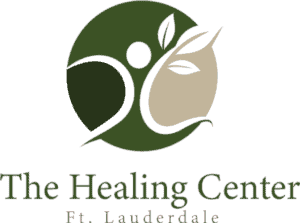Pain killers can provide numerous benefits for those who suffer from conditions that cause chronic pain. Unfortunately, they can also become addictive which causes a person to need help in order to stop taking them. Vicodin addiction affects the lives of many people. What may have started as trying to relieve a painful condition, can turn into a dangerous addiction before someone even realizes what is happening. If you are in the throes of Vicodin addiction, then reach out to a drug rehab facility as soon as possible.
What Is Vicodin?
Vicodin is a prescription medication used to treat moderate to severe pain. It contains two ingredients. The first is hydrocodone, which is an opioid, and the second is acetaminophen, which is a non-opioid. As with any opioid drug, this medication comes with the warning that it may cause addiction. Because of the risk of Vicodin addiction, the medication should only be taken at the prescribed dosage and frequency by people who have a prescription for it. The usage of the medication should always be monitored by a doctor.
Vicodin affects the nervous system and brain. It intercepts the chemical signals for pain. Thus, it provides relief from painful conditions such as surgeries and chronic pain conditions. The medication comes in both tablets and liquid form and should be taken orally.
Signs and Symptoms of Vicodin Addiction
When individuals develop a Vicodin addiction, they show certain signs and symptoms that are telling of the disease. The signs and symptoms of Vicodin addiction include:
- Increased heart rate
- Sweating
- Change in sleep patterns
- Mood swings
- Disregarding daily responsibilities like family, career, and school in order to use the drug
- Doctor shopping (visiting several doctors to get multiple prescriptions)
- Developing a tolerance for the medication
- Mixing Vicodin with other drugs
- Isolating
- Anxiety
- Depression
A substance use disorder professional can perform an assessment of a person in order to determine if a Vicodin addiction has developed. If you need to contact an addiction specialist near you, then contact The Healing Center’s admission department. We can complete an addiction assessment over the phone and recommend the best course of treatment for you.
What Causes Vicodin Addiction?
Vicodin is classified as a Schedule II drug. Meaning, the drug has been approved by the FDA for medical uses. However, this classification also indicates there is a high risk of developing a Vicodin addiction. Other Schedule II drugs include morphine, Demerol, Dilaudid, fentanyl, and Adderall.
Addiction to drugs and alcohol can begin with numerous different factors. With prescription drugs, an individual normally starts out by using the drug as prescribed with positive results. Unfortunately, addiction can quickly take hold and they start to increase the amount of the medication they take. Furthermore, they normally do not disclose the increased use to their provider. Other individuals may get addicted to Vicodin without even having a prescription. This population usually obtains the drug from other sources and uses it for their own medical or recreational use. From there, addiction can develop.
The propensity for addiction can come from many different sources, including genetics. A person with a family history of addiction normally has an increased risk of developing an addiction of their own. It can also be a learned behavior from childhood from a caregiver or someone else who is close to the individual. No matter how the addiction developed, it is important to seek help. A drug rehab facility in Fort Lauderdale can help you identify and treat the underlying causes of your addiction.
How Is Vicodin Addiction Treated?
Vicodin addiction requires professional treatment from a drug rehab facility that specializes in treating substance use disorders. Treatment for addiction begins with a detox program. During detox, a person is able to safely and comfortably go through the withdrawal process in order to rid their body of the substance they are addicted to. At detox, they receive expert medical treatments that reduce withdrawal symptoms and ensure the detox process is safe and effective.
Next, the addicted individual needs to continue with either residential or outpatient rehab. The more steps in the treatment process they complete, the higher chances they have of a successful recovery journey. For individuals who do not need inpatient care, outpatient rehab can assist them in continuing to learn about how to maintain their recovery. Outpatient programs include partial hospitalization, intensive outpatient, outpatient, and individual counseling. With these programs, individuals receive care during the day while living at home or in a sober living environment.
A variety of treatment modalities are used to treat Vicodin addiction. The treatment plan given depends on the needs of the individual. Therapies included in a treatment plan for Vicodin addiction include individual, group, and holistic therapy. Other therapies may include trauma therapy, cognitive behavioral therapy, and medication assisted treatment.
Does Insurance Provide Coverage for Vicodin Addiction Treatment?
Some people might be surprised to know that Vicodin addiction treatment is covered by most insurance policies. Addiction to Vicodin falls under the category of a substance use disorder, which insurance companies recognize as a medical condition that requires professional help. If you are struggling with Vicodin addiction and want to get help, then you can contact your insurance company in order to find out what options are available through your policy.
Get Help For Vicodin Addiction in Fort Lauderdale
Do you or a loved one need assistance with dealing with an addiction? Painkillers and opioids make up the majority of the substances that people become addicted to and they require professional intervention in order to treat, The Healing Center in Fort Lauderdale, FL has years of experience in treating this type of addiction. We provide many different services and programs that help individuals recover from addiction. Visit our admissions page today and start your journey down the road of recovery. We are here to help you today.






